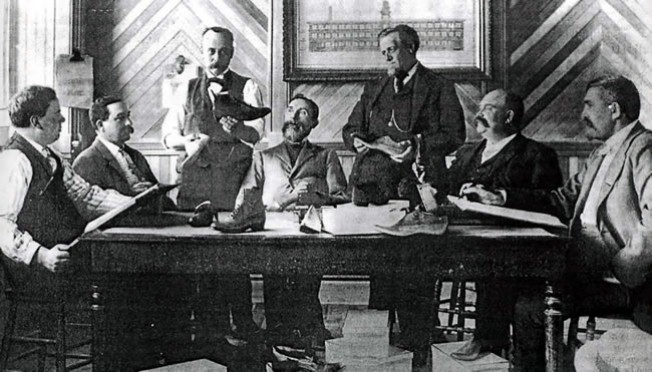
1. Is Your Company Operating from an Industrial-Era Playbook? (This article)
2. Why Performance-Based Compensation Doesn't Work
3. Traditional Project Management Needs and Upgrade
A natural result of human evolution is the desire for man to establish control over the world around him. Ever since the earliest days of civilization, long before science, man conducted rituals to foretell the future and performed ceremonies to control the environment. Fortunately for us, we learned a thing or two along the way, developed science, and switched from rain dances to irrigation systems.
In fact, we were so successful using science to control our world, it was only a matter of time before we applied scientific principles to business. In the early 1900s, management pioneers like Fredrick Taylor, Henri Fayol and Henry Gantt led the charge. Taylor, acknowledged as the father of scientific management, realized that factory workers became more productive when their compensation was tied to their output, and thus developed the concept of piece rates. Fayol, considered the father of modern business administration and project management, defined the five essential functions of project management:
- To forecast and plan
- To organize
- To command or direct
- To coordinate
Henry Gantt developed the famous Gantt chart, allowing plant supervisors to monitor factory production to determine if output was on schedule.
Oh, those were good days for management. The items being produced were relatively simple (as Henry Ford famously said, “Any customer can have a car painted any color that he wants so long as it is black”). The processes required to build products were fairly straightforward. And even though the workforce was not well educated, they were easy enough to control with new management techniques in place. But most importantly of all, technology advanced at a leisurely pace, and things didn’t change too quickly.
Sadly, those simple times are over. Today businesses are faced with a much trickier landscape:
| Back Then | Today |
|---|---|
| Products were simple and mechanically oriented. | Products are highly complex and software oriented. |
| Work was piecemeal. Components could be developed independently. | Work must be done in teams. Components are highly interconnected. |
| The workforce was largely uneducated. | The workforce is highly educated. |
| Data collection was costly and limited. | Data collection is cheap and far reaching. |
| Technical advancement happened slowly. | The pace of technological change is insane. Entire business models become obsolete in a matter of years. |
Despite these major and obvious differences, companies today are still employing many key practices created during the industrial era. These practices are based on long-held assumptions rooted in 1900s thinking:
- Management knows what’s best for the company, while workers are merely self-interested actors
- The activities of workers must be tightly controlled
- The environment in which production occurs is relatively stable
We’ll explore two critical businesses practices–employee compensation and project management–to uncover our hidden industrial-era habits.